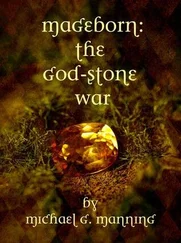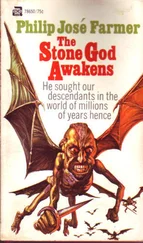Hours passed; the stand-off continued. You withdraw; no, you withdraw. The men standing further back began to jostle and push. What was all this talk? Qayyum, weaponless at the front, understood that something would shift soon, something would happen. But for the moment he saw no need to stifle the unexpected love he felt for the uniformed men of the British Indian Army, seeing in each one the comrades he had lost at Vipers, and himself, too, as glimpsed through a dead eye. Earlier in the day, when the Garhwal Rifles had refused to fire on the unarmed men ranged against them he felt terror on their behalf rather than any sense of victory at knowing the strategy to shame those who would cut you down without mercy if you fought back was already beginning to work. The Sikh soldiers returned to the barracks with shoulders unslumped, necks unbowed, but Qayyum knew they would already be thinking of what would follow: court martial, perhaps a firing squad. The English would not act gently with Indian soldiers who sided with revolutionaries. No one had forgotten 1857, or even 1915.
And so, rather than enmity, it was love he felt; love and pity. Pity for the lives lost when the armoured cars charged in and the troops opened fire, pity for those Indian soldiers whose minds were enslaved, pity for the families whose hearts would shatter today. Even, a kernel of pity for the English officers. That sense of honour which the English and the Pashtun had in common, as the officers of the 40th Pathans so often reminded their men, was now a weapon wielded by one against the other. Today the officers would give orders to fire on unarmed men, and almost all the soldiers would obey — but tomorrow if asked to return here and do the same, their wills would sag. Or if not tomorrow than next month, next year.
And then, he had his only moment of fear: a girl stepped out from the lines of the Peshawari men, walked through the ranks of sepoys who stepped aside as if she were a djinn whose touch might burn them, and stopped in front of an armoured car. Everyone silenced. The girl — bare-headed, plait swinging — picked up a turban lying near the wheel of the armoured car and moved back into the crowd which parted to make space for her and then closed up again in her wake. Qayyum glanced up towards the rooftops and balconies of the Street of Storytellers. Women and children were leaning down, watching. There must be something wrong in the girl’s head — like the molasses-seller’s son who had to continually be watched so he didn’t present himself to danger as if it were a game. Whoever should have been minding the girl must have been too intent on watching the Street of Storytellers to notice her slip away. He should find her and lead her back to safety, but the press of men made it difficult to move or to know where she had disappeared.
Then the firing started, the bayonets followed. Fall back, fall back — Inqilaab Zindabad, Inqilaab Zindabad. Bullets and the screams of men, and a stench of blood. But this was nothing like Vipers, here he was fearless, here he would die if he must and he wouldn’t ask why. Yet somehow the bullets didn’t touch him though around him men fell; too many of them to lift up and carry away, and more soldiers had arrived, firing now even on those who were bearing the dead; impossible to hold ground any more. Fall back, fall back. Through the alleys, soldiers giving chase, two behind and one up ahead, all converging on Qayyum.
— I’ll rip out my own eye before you can touch me!
He bellowed the words, reaching up and prising out the glass eye with an exaggerated gesture. The soldier up ahead pressed himself against a doorway, bayonet falling from his grasp, and Qayyum held the eye up towards him as he ran past. He could hear the other soldiers stop to ask what had happened, what had the soldier seen, and he laughed as he ran, a warrior who had found his battle.
The buoyancy left him as the sound of bullets and booted feet continued to echo through the Walled City. The troops were chasing men through Peshawar as though it were an English hunt. At any moment he might hear a bugle, or step over a corpse with its lips sewn shut. He turned into a street so narrow it allowed in no light, and a man could press himself against a doorway and become shadow.
Years earlier, Qayyum’s mother had tried to find a wife for him. Everything was agreed on when the girl fell ill and suddenly died. The whispers were quick to follow — Qayyum Gul, the half-blind man, was ill-fated. Any family which gave their daughter to him would risk disaster. Enough, Qayyum told his mother. Don’t search any more. There seemed an inevitability to it; his life was already moving in the direction of politics. From the moment under the blue tarpaulin when he heard Ghaffar Khan speak of the need for Pashtuns to break their addiction to violence and revenge he knew he had found a general he could follow into any battle. When the battle was over there would be time for a wife and children — men didn’t age as women did. And until then, what he wanted with immediacy and couldn’t always deny himself was available here, on the Street of Courtesans.
Now, for the first time he’d ever known, the street was completely silent, its doorways closed, but he saw the curtains move as he walked its length, and ahead of him a door opened and a woman’s hand, flicked at the wrist, urged him to approach. The sound of booted feet, the screams of dying men drew closer as his rapid strides made up the distance between himself and sanctuary. The door closed behind him; he was in a room that he might have been in before, large enough for a bed with frilled covers, in the company of a woman with whom he might have lain upon it, though it was impossible to know; the make-up which disguised rather than enhanced the courtesan’s features was absent so she was just a tired woman past youth, a bruise beneath her eye.
The curtains, identical to those which covered the back walls of all the courtesans’ rooms, were open, and for the first time he saw that there was a doorway behind. Always viewing the women along the street as rivals he had never thought that their lives were interconnected and now he struggled to imagine what they might say to each other at the end of a working day. Did they compare? The thought made the blood rise hot to his cheeks even as he stepped past the curtains, down a hallway and into a large room crowded with men, some in Congress khaddar, two in red shirts, and a few who didn’t wear their allegiances on their sleeves. The room itself was simple, and homely — bolsters and rugs along the floor, repeating motifs of flowers painted in a strip along the wall, faded and peeling, but only slightly. Some of the men sat with their heads in their hands, or stared vacantly ahead, but most of them spoke to each other in urgent whispers which broke off when Qayyum entered the room and started up again when they recognised him as one of their own.
— We’re trying to understand why they sent in the armoured cars, a Congresswalla said as he made space for Qayyum to sit down. There’s Civil Disobedience all across India and nothing like this has happened.
Qayyum knew the answer. It lay in all those speeches by the English officers which had made him feel such pride when he was in the Army and thought there was honour in being identified as a Martial Race: Because they couldn’t believe we were unarmed; they wouldn’t believe we weren’t intent on violence.
— Quiet, idiots! They’re here!
Even the men who hadn’t heard the words of the grey-haired, hard-faced woman who rushed into the room heard the tone of it, and fell silent. Into the void where their voices had been the sound of a fist hammering on a door rushed in, and an English voice demanded entry. The grey-haired woman looked over her shoulder at the girl who had entered behind her. It was obvious by something in her that hadn’t yet been erased that she was new here. The newness gave her beauty, more than her curved kohl-lined eyes or her unpainted lips the colour of crushed rose petals. The room changed, was charged with something unpleasant, slightly dangerous, which Qayyum was as much a part of as anyone else.
Читать дальше












